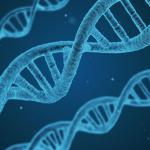The APA, enacted in 1946, governs how federal agencies issue regulations.
EPA
During his long-overdue testimony before the House Committee on Agriculture in April, EPA Administrator Michael Regan complained about anti-pesticide groups tying up his Agency’s resources
Join host Cameron English as he sits down with Dr. Chuck Dinerstein to break down these stories on Episode 40 of the Science Dispatch podcast:
The first, Pulling Back the Curtain on EPA’s Health Advisories, is on a subject that I have been more or less obsessed with o
These chemicals resemble fatty acids that we would normally be able to eat. But since they are fluorinated, they are resistant to water and are long-lasting (we cannot digest them).
Unlike many issues, such as climate change or how to deal with a pandemic, there is a near-universal scientific consensus that ballast water discharge can introduce non-native species that quickly become invasive, resulting in ecological damage, h
“Since my kids at the time were basically mainlining apple juice and applesauce, and I was fairly celebrated for my pies, this did alarm me,” Streep said.
If glyphosate is such a deadly pesticide, why do activist groups have to lie about it?
Background
To determine whether a chemical poses a cancer risk to the population, two issues need to be assessed:
If the media tells you a group of chemicals is dangerous, be skeptical. The compounds in question may indeed be harmful, but there's a good chance they're reasonably safe and make our lives better.












